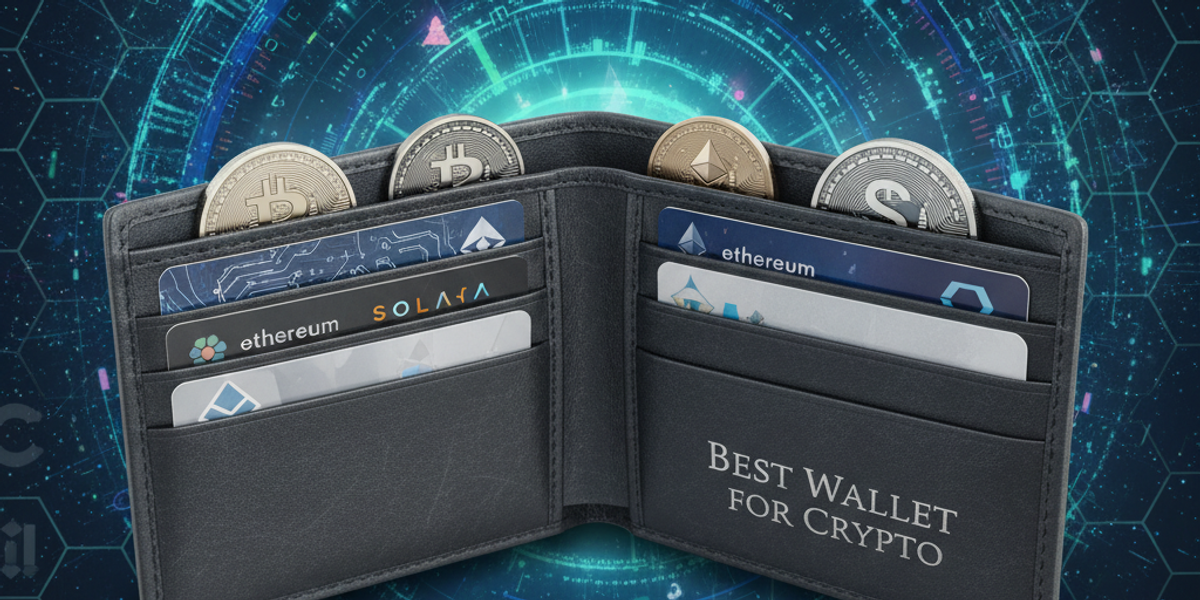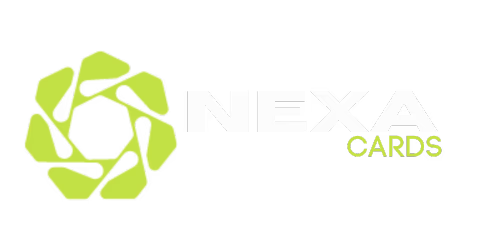
Best Wallet For Crypto in 2025: Complete Guide & Top Picks
Discover everything about best wallet for crypto: features, benefits, best providers, and expert comparisons. Updated for 2025 by Nexa Cards Solutions, Ltd.
As cryptocurrencies continue to dominate the global financial landscape, finding the best wallet for crypto in 2025 has become a crucial decision for both beginners and seasoned investors. The right wallet not only secures your digital assets but also gives you seamless access to trading, staking, and decentralized applications.
With constant innovations, enhanced security protocols, and regulatory changes, the crypto wallet ecosystem has evolved beyond simple key storage. This comprehensive guide will help you understand what makes a wallet reliable, secure, and worth your investment — along with top recommendations, key features, pros and cons, and practical advice to make an informed choice.
Overview
A crypto wallet acts as your digital keychain — allowing you to store, send, and receive cryptocurrencies safely. It doesn’t hold your coins directly but stores the private keys that prove your ownership on the blockchain. Whether you’re a casual investor, NFT trader, or DeFi enthusiast, your wallet is your primary tool for interacting with the crypto world.
In 2025, there are hundreds of wallets claiming to be the “best,” but only a few deliver the perfect blend of security, accessibility, and multi-chain support. The best wallet for crypto should be secure, user-friendly, and adaptable to new blockchain technologies.
Before exploring top providers, it’s important to understand what separates a good wallet from a great one.
Key Features to Look For
When choosing the best wallet for crypto, several essential features determine how effectively it will safeguard and manage your assets.
- Self-Custody and Control: The wallet should be non-custodial, meaning only you control the private keys. This eliminates dependence on third parties and protects you from exchange hacks.
- Multi-Chain Compatibility: The crypto space is no longer limited to Bitcoin or Ethereum. The ideal wallet supports multiple blockchains such as Solana, Polygon, BNB Chain, and Avalanche.
- User-Friendly Interface: A simple, intuitive design ensures you can manage assets, perform swaps, or check balances without confusion.
- Backup and Recovery Options: The best crypto wallets in 2025 include innovative recovery methods — from seed phrases and social recovery to multi-signature backups.
- Integrated Swaps and DEX Access: A built-in swap or decentralized exchange lets you trade assets directly within the wallet, saving time and transaction fees.
- Advanced Security Tools: Look for phishing protection, transaction alerts, and smart contract risk warnings that add extra layers of safety.
- Hardware Integration: Compatibility with hardware devices like Ledger or Trezor is a plus for cold storage and long-term holding.
- Open Source and Audited Code: Transparency is key. A wallet with publicly reviewed code ensures reliability and community trust.
These features make a wallet not just convenient but secure and future-proof — essential traits of the best wallet for crypto.
Pros and Cons of Using Crypto Wallets
Every crypto wallet offers a balance between control, convenience, and safety. Here’s what to expect before making your choice.
Pros
- •Full Ownership: You control your private keys, eliminating third-party risks.
- •DeFi and NFT Access: Most wallets today integrate with decentralized apps, allowing easy access to staking, lending, and NFT marketplaces.
- •Privacy Protection: Non-custodial wallets don’t require KYC, maintaining anonymity.
- •Global Accessibility: You can manage your assets anywhere, anytime.
Cons
- •Risk of Loss: Losing your seed phrase means losing access permanently.
- •Learning Curve: Beginners may find private key management intimidating.
- •Hardware Costs: Premium security wallets can be expensive.
- •Limited Recovery Help: Unlike banks, there’s no customer support to recover forgotten keys.
Understanding these factors helps you choose a wallet that matches your comfort level and security needs.
Top Wallet Providers in 2025
Choosing the best wallet for crypto depends on your goals — whether you prioritize convenience, advanced security, or multi-asset support. Below are some of the leading names in 2025.
Ledger (Nano X, Stax, Flex): A pioneer in hardware wallets, Ledger provides exceptional security through its certified Secure Element chips. It supports thousands of cryptocurrencies and offers Bluetooth and mobile compatibility. Ideal for long-term investors who prioritize safety.
Trezor (Model T): An open-source hardware wallet known for transparency and strong community backing. It supports Shamir backup and provides excellent cold storage solutions for serious holders.
Tangem: A futuristic NFC-based hardware wallet that eliminates the need for seed phrases. It’s compact, card-shaped, and supports thousands of tokens — a great blend of innovation and simplicity.
Exodus: A beautifully designed software wallet for desktop and mobile. It combines ease of use with features like staking, token swaps, and hardware wallet integration. Perfect for users who want both control and convenience.
MetaMask: A household name in the DeFi and NFT ecosystem. It’s a browser-based and mobile wallet that supports thousands of decentralized apps. Excellent for active traders and Web3 enthusiasts.
Phantom: Initially a Solana wallet, now expanded to support multiple chains. It offers lightning-fast transactions and a clean interface, suitable for those focused on speed and simplicity.
Rabby Wallet: A security-focused browser wallet that auto-detects the correct blockchain network and warns users about risky contracts. It’s becoming popular among DeFi professionals.
Bitkey: A new multisig Bitcoin wallet launched by Block (formerly Square). It combines mobile and hardware security, ensuring flexibility and control for Bitcoin-only investors.
Each of these wallets has unique strengths — some emphasize tight security, while others offer the best usability for daily transactions.
For more insights, you can also explore related guides such as [Best crypto wallet], [Crypto debit card], and [Virtual card for business] for complementary financial tools that integrate seamlessly with digital wallets.
How It Works
A crypto wallet works as a bridge between you and the blockchain. Here’s how the process unfolds:
When you create a wallet, it generates a private key — a secret string that proves ownership of your funds — and a corresponding public address used to receive assets. The private key never leaves your device; transactions are signed locally to ensure security.
Once you send crypto, the wallet signs the transaction with your private key and broadcasts it to the network. The blockchain confirms it, and your balance updates accordingly.
Modern wallets also connect with node providers (like Infura or Alchemy) to retrieve blockchain data, display balances, and process transactions quickly.
Some wallets use advanced zero-knowledge proofs or multisig systems to enhance privacy and prevent fraud. Recovery methods, such as seed phrases or hardware backups, help you restore your wallet in case of device loss.
This seamless yet complex process is what makes choosing the best wallet for crypto so important — a well-built wallet ensures security without sacrificing usability.
Fees and Limits
Most wallets are free to download, but transactions still incur network fees. These fees go to blockchain miners or validators rather than the wallet provider.
Some wallets add small spreads or commissions when using built-in swap features or fiat on-ramps. Always review fee policies before using them for large trades.
Limits may also apply based on blockchain minimums — for example, certain tokens require minimum send amounts.
While hardware wallets like Ledger or Trezor have an upfront cost, they often save you from far greater losses by protecting your keys offline. The best wallet for crypto provides full transparency about any applicable fees or commissions.
Security and Trust
Security is the foundation of every reputable wallet. In recent years, phishing, fake apps, and address poisoning have become common threats. Reliable wallets now include built-in protection against such attacks.
The best wallets for crypto offer features like:
- •Real-time phishing alerts and address verification
- •Biometric authentication or PIN locks
- •Multi-factor or multi-signature authorization
- •Cold storage or hardware integration for offline signing
- •Open-source code and third-party audits
Reputation also matters. Established brands such as Ledger, Trezor, and MetaMask have long histories of reliability and active community support. Always download wallets from official sources and verify authenticity before setup.
Remember: security doesn’t stop at the wallet. Practice safe habits — avoid clicking suspicious links, double-check addresses, and never share your seed phrase.
FAQs
1. What is the best wallet for crypto beginners? For newcomers, wallets like Exodus or MetaMask are easy to use and support multiple assets, making them ideal starting points.
2. Which is safer: hardware or software wallets? Hardware wallets provide offline protection, making them more secure for long-term storage. Software wallets are more convenient for daily use.
3. Can I use one wallet for all cryptocurrencies? Multi-chain wallets now support a wide range of tokens, but some specialized assets may still require dedicated wallets.
4. Are crypto wallets free to use? Most software wallets are free, though transactions incur blockchain fees. Hardware wallets involve a one-time purchase.
5. How can I recover my wallet if I lose my device? Use your recovery seed or backup phrase on a compatible wallet to regain access. Keep your seed phrase stored securely offline.
6. Is it safe to connect my wallet to dApps? Yes, as long as you use verified applications and review permissions before confirming transactions.
Final Thoughts
Selecting the best wallet for crypto in 2025 requires balancing three main factors — security, accessibility, and flexibility. With options ranging from hardware vaults like Ledger and Trezor to powerful multi-chain software wallets such as Exodus and MetaMask, users now have more control than ever over their digital assets.
The key is to understand your priorities: if you value maximum protection, choose hardware wallets; if you prefer convenience and DeFi access, go for trusted software options.
As the crypto ecosystem grows, wallets are becoming central to managing digital identities, assets, and payments. Whether you’re investing, staking, or transacting, your wallet is your gateway to the decentralized world — so make sure it’s the best one for you.
For deeper insights, explore related guides like [Best crypto wallet], [Crypto debit card], and [Virtual card for business] to extend your digital finance toolkit.

